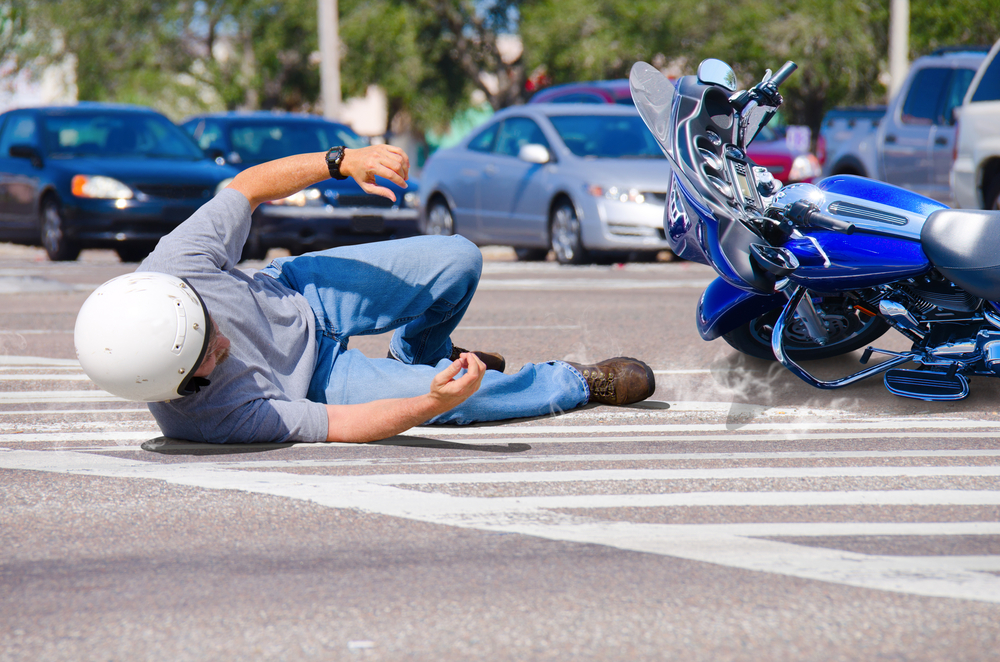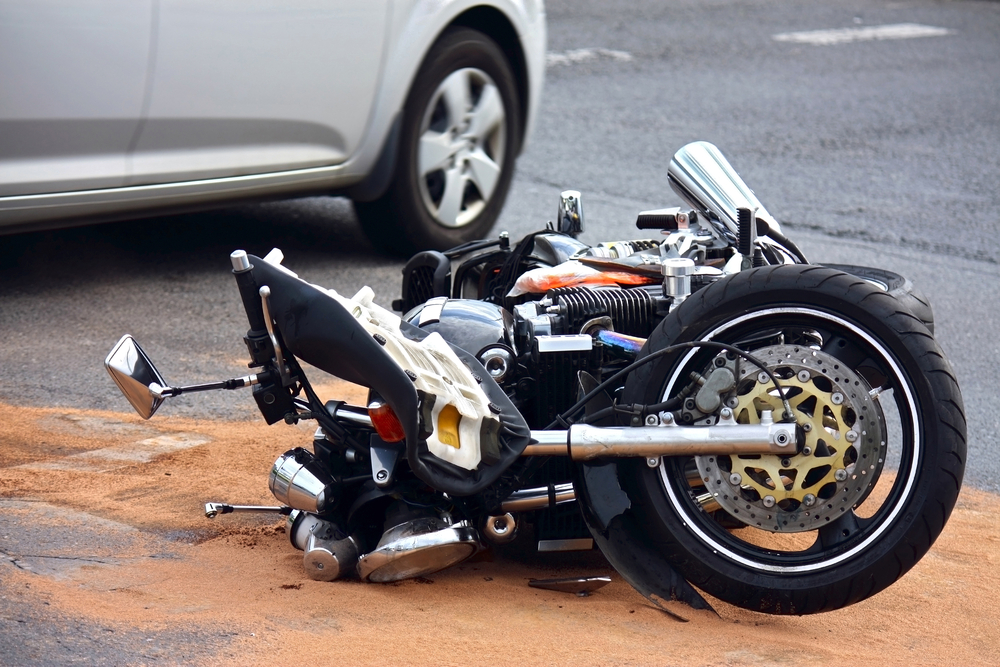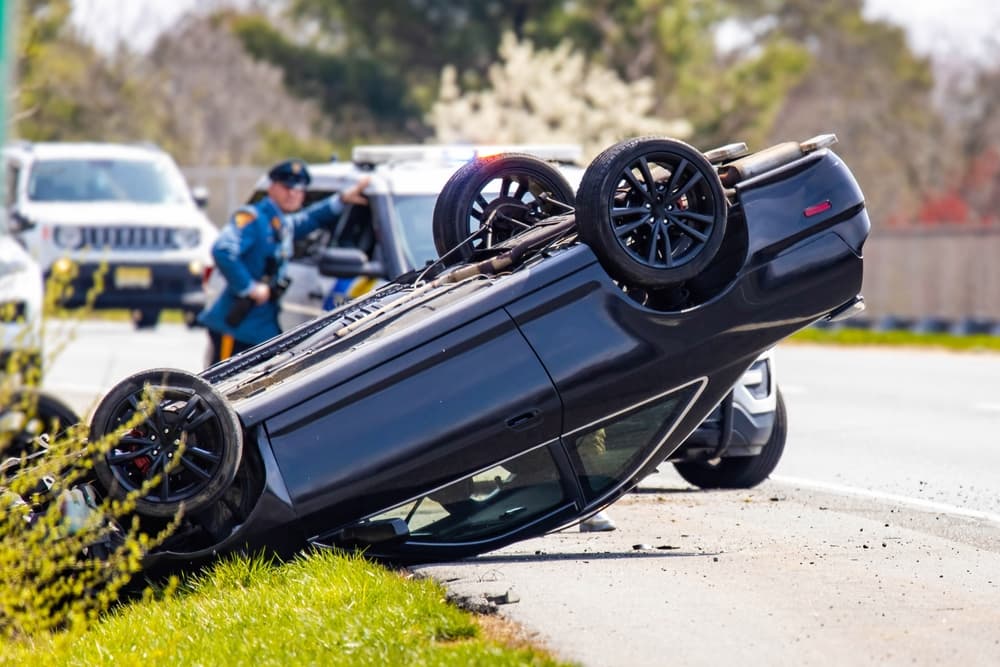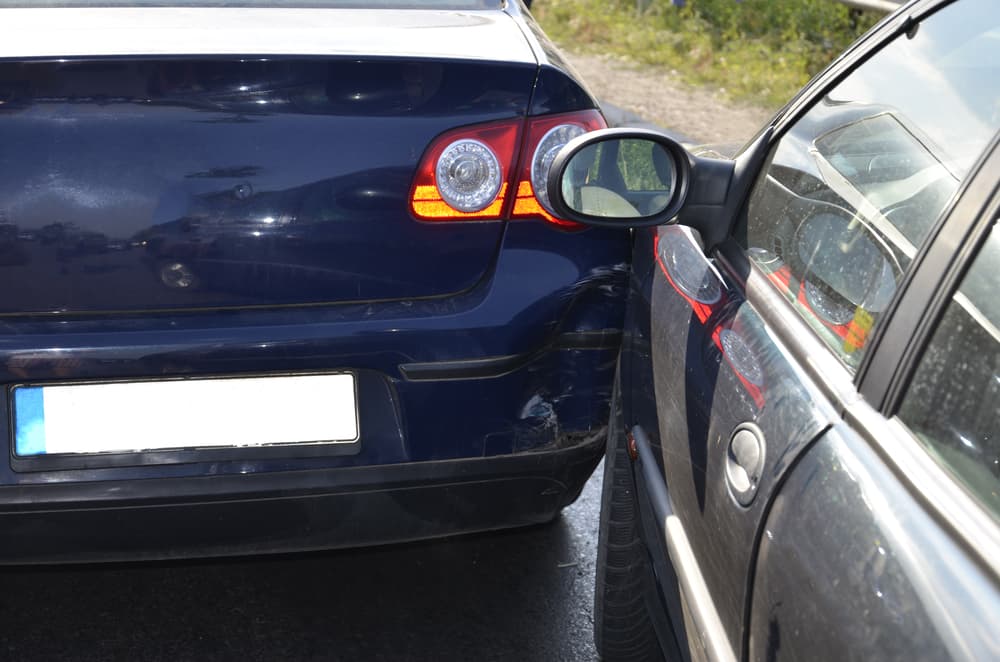Because of their direct exposure to the ground, motorcycle riders frequently suffer debilitating – and sometimes fatal – injuries in a serious crash. Many motorcycle crashes are a direct result of someone else’s negligence, including that of another driver, municipality, or construction company.
If you sustained injuries in a recent motorcycle crash, an experienced Michigan motorcycle accident attorney in your area can discuss the circumstances of your accident with you and undertake a thorough investigation. Your lawyer can then file a personal injury claim or lawsuit on your behalf for the damages you deserve.
Schedule a Free Initial Consultation Today!
Types of Motorcycle Accident Injuries and How They Frequently Occur
Motorcycle accidents can result in a wide range of injuries, often due to the lack of protection afforded by motorcycles compared to other vehicles. Understanding the most common types of injuries, how they occur, and the necessary medical treatment is crucial for both riders and medical professionals.
One of the most common types of injuries in motorcycle accidents is road rash. This occurs when the rider’s skin comes into contact with the road surface during a crash, leading to abrasions, cuts, and lacerations. Road rash can range from mild to severe, often depending upon the speed of the crash and the level of protective gear that the rider was wearing.
Another common injury is bone fractures, which occur when the force of impact causes a motorcycle rider’s bones to break. Fractures can affect any part of the body but are particularly common in the pelvis, arms, and legs. Severe fractures may also require surgical intervention to realign the bones and promote healing.
Head injuries are also prevalent in motorcycle accidents – especially when a victim’s head strikes the ground with significant force. These injuries can range from concussions and skull fractures to traumatic brain injuries (TBIs), which can have long-term consequences on the victim’s cognitive functioning and motor skills.
Spinal cord injuries are another serious consequence of motorcycle accidents, often resulting in partial or complete paralysis below the level of injury. These injuries can have a profound effect on the victim’s mobility level, sensation, and quality of life, requiring extensive medical treatment and rehabilitation.
Additionally, soft tissue injuries, such as muscular strains, tendon tears, and ligament sprains, are common in motorcycle accidents. These injuries can cause significant pain and limited range of motion, requiring physical therapy and other forms of rehabilitation for the injured cyclist to regain function.
The necessary medical treatment for motorcycle accident injuries varies depending upon the severity and injury type. For more minor injuries like road rash and some soft tissue injuries, treatment may include cleaning and dressing wounds, pain management, and physical therapy to promote healing.
For more severe injuries like fractures, head injuries, and spinal cord injuries, treatment may involve surgery, immobilization with casts or braces, and ongoing physical therapy. In cases of traumatic brain injury, ongoing medical care with a neurologist, along with therapy, may be necessary to improve cognitive functioning and lessen symptoms.
Overall, motorcycle accidents – especially those that occur at high speeds – can result in a variety of injuries, including road rash, fractures, head injuries, spinal cord damage, and soft tissue injuries. Understanding how these injuries occur and the necessary medical treatment is essential for both riders and medical professionals to ensure prompt and effective care following a motorcycle accident.
How do Motorcycle Accidents Usually Occur?
Motorcycle accidents caused by someone else’s negligence can result from various factors, most of which stem from negligence.
One common cause of motorcycle accidents is inattentive driving. This occurs when drivers engage in activities like texting, adjusting the radio volume, eating, drinking, or talking on the phone while behind the wheel, diverting their attention from the road and increasing the likelihood of motorcycle collisions.
Another frequent cause is failure to yield the right-of-way. Other motorists often overlook motorcycles and may cause accidents when they fail to give them the appropriate right-of-way at intersections, during lane changes, or when merging onto highways.
Moreover, speeding is a significant factor in motorcycle accidents. When drivers exceed posted speed limits, they have less time to react to emergency situations that may arise on the road and are more likely to lose control of their vehicles, increasing the risk of an accident.
Additionally, driving under the influence of alcohol or drugs poses a serious threat to motorcyclists. Impaired drivers frequently experience poor muscular coordination, delayed reaction times, and impaired judgment, making them more likely to cause accidents with other vehicles, including motorcycles.
Furthermore, unsafe lane changes and sudden stops are common causes of motorcycle accidents. When drivers fail to check their blind spots before switching lanes or fail to use their turn signals at the appropriate times, they may inadvertently collide with a motorcycle traveling in an adjacent lane. Similarly, sudden stops can catch motorcyclists off guard, leading to rear-end collisions.
As for specific types of motorcycle accidents, rear-end collisions are prevalent, occurring when vehicles behind the motorcycle fail to stop in time, resulting in the motorcycle being struck from behind.
Another common type is left-turn accidents, where a vehicle making a left turn fails to yield to an oncoming motorcycle, resulting in a collision. These accidents often occur at traffic intersections – and at high speeds.
Moreover, lane-splitting accidents can occur when motorcyclists ride between lanes of slow or stopped traffic. Drivers may negligently fail to anticipate the presence of motorcycles in between lanes, leading to sideswipe or rear-end collisions.
Motorcycle accidents resulting from someone else’s negligence can result from various factors, including distracted driving, failure to yield, speeding, impaired driving, unsafe lane changes, and sudden stops. If you suffered injuries in a motorcycle accident that resulted from another motorist’s negligence, an experienced personal injury attorney can discuss your accident with you and explain your available legal options.
How to Prove Motorcycle Accident Injuries
Proving motorcycle accident injuries in a personal injury claim or lawsuit requires gathering and presenting evidence to establish the extent of the injuries, their effect on the victim’s life, and the liability of the at-fault party. Here's how this process unfolds:
- First, medical records usually play a crucial role in proving motorcycle injuries. These records provide documentation of the injuries sustained, including diagnoses, treatment plans, and medical expenses incurred. X-rays, MRI scans, and other imaging tests can further corroborate the severity of the victim’s injuries.
- Secondly, witness statements are valuable evidence in demonstrating how the accident occurred and the injuries sustained. Eyewitnesses who observed the accident can provide firsthand accounts of what they saw, while expert witnesses, such as medical professionals or accident reconstruction specialists, can offer insights based on their knowledge and expertise.
- Thirdly, photographs and videos of the accident scene and the victim’s injuries can serve as supporting evidence. This includes pictures of the damaged motorcycle, skid marks, road conditions, and visible injuries like bruises, lacerations, or fractures.
- Moreover, documentation of lost income can demonstrate the financial effects of the accident-related injuries on the victim’s life. Tax returns, pay stubs, and employer statements can establish the victim’s pre-accident earnings, while medical records and doctor’s notes can verify the need for time off work due to injuries.
- Furthermore, expert testimony may be necessary to explain complex medical conditions or assess the long-term consequences of the victim’s injuries. Medical experts can provide insights into the nature of the motorcyclist’s injuries, the likelihood of a full recovery, and the need for ongoing therapy or treatment.
- Additionally, the victim’s own testimony is essential in conveying the suffering, pain, and emotional distress they experienced due to their injuries. This can include describing the physical limitations that the injuries imposed on their life, the emotional effect of the accident, and the effect on their ability to perform daily life activities.
Lastly, documentation of property damage, such as repair estimates or receipts for motorcycle repairs, can establish the extent of damage to the victim’s property and support claims for compensation.
Proving motorcycle injuries in a personal injury claim or lawsuit requires a combination of medical records, witness statements, photographs, financial documentation, expert testimony, and the victim’s personal testimony. By compiling and presenting this evidence effectively, victims can seek fair compensation for their injuries and losses resulting from the accident.
Recoverable Damages in a Third-party Motorcycle Accident Claim or Lawsuit
In a personal injury lawsuit or claim following a motorcycle accident, victims may be entitled to various damages to compensate for their losses and injuries. These damages can be classified into three main categories: economic damages, non-economic damages, and punitive damages.
In a motorcycle accident case, the main purpose of economic damages is to compensate victims for the financial losses they incurred as a direct result of their accident. This includes medical expenses for hospital care, surgeries, medications, physical therapy, and anticipated medical care.
Additionally, victims may seek compensation for lost earnings due to their inability to work while attending medical appointments and recovering from their injuries. This can also include compensation for loss of earning capacity. Furthermore, victims may be entitled to compensation for property damage, such as repairs or replacement of their motorcycle and any personal belongings that suffered damage in the collision.
Non-economic damages aim to compensate accident victims for the various intangible losses and hardships they experienced due to the accident. This includes compensation for all of the following:
- Past and future pain and suffering
- Emotional distress
- Mental anguish
- Lost quality of life
Punitive damages may also be available to victims in certain cases. However, these damages are typically only awarded following crashes that involve gross negligence, intentional misconduct, or wanton disregard for the safety of others on the road.
Seeking legal representation from a skilled motorcycle accident lawyer can help victims navigate the legal process and pursue the compensation they deserve for their injuries and losses.
Options in a Motorcycle Accident Case
Following a motorcycle accident, victims may have several litigation options available to pursue compensation for their injuries and losses. These options include a trial, mediation hearing, or binding arbitration hearing, each with its own process and potential outcomes.
A trial involves presenting the case before a judge and possibly a jury, who will hear evidence, testimony, and arguments from both sides before reaching a verdict. During the trial, each party has the opportunity to present their case and challenge the evidence that the opposing party presents. The judge or jury then decides whether the other motorist was negligent and, if so, the amount of compensation to be awarded to the victim.
Mediation offers an alternative to a trial by facilitating negotiations between the parties with the help of a neutral third-party mediator. During mediation, both parties meet to discuss the case and attempt to reach a settlement agreement without going to trial. The mediator assists the parties in exploring possible solutions, and if a settlement is reached, it is typically binding and cannot be appealed.
Binding arbitration is another alternative dispute resolution (ADR) process where a neutral arbitrator hears evidence and arguments from both parties and renders a decision that is legally binding on both sides. Unlike mediation, where the parties negotiate a settlement, the arbitrator in binding arbitration has the authority to make a final decision on the outcome of the case. While binding arbitration can be faster and less formal than a trial, the decision is typically final and cannot be appealed except in limited circumstances.
When deciding which litigation option to pursue, victims should consider factors such as the complexity of their case, the likelihood of success at trial, and the cost and time involved in each option. While trials offer the opportunity for a judge or jury to award compensation based on the evidence presented, they can also be lengthy and unpredictable. Mediation and binding arbitration, on the other hand, offer the potential for a quicker resolution and greater control over the outcome, but they may require compromise from both parties.
An experienced motorcycle accident lawyer in your jurisdiction can help you decide between various litigation options in your case.

Talk with a Knowledgeable Motorcycle Accident Lawyer about Your Legal Matter Today
Upon suffering injuries in a motorcycle accident due to someone else’s negligence, you may be eligible to recover damages. A skilled motorcycle accident lawyer in your area can discuss your legal options and work to maximize the settlement or litigation compensation that you ultimately receive for your losses.






